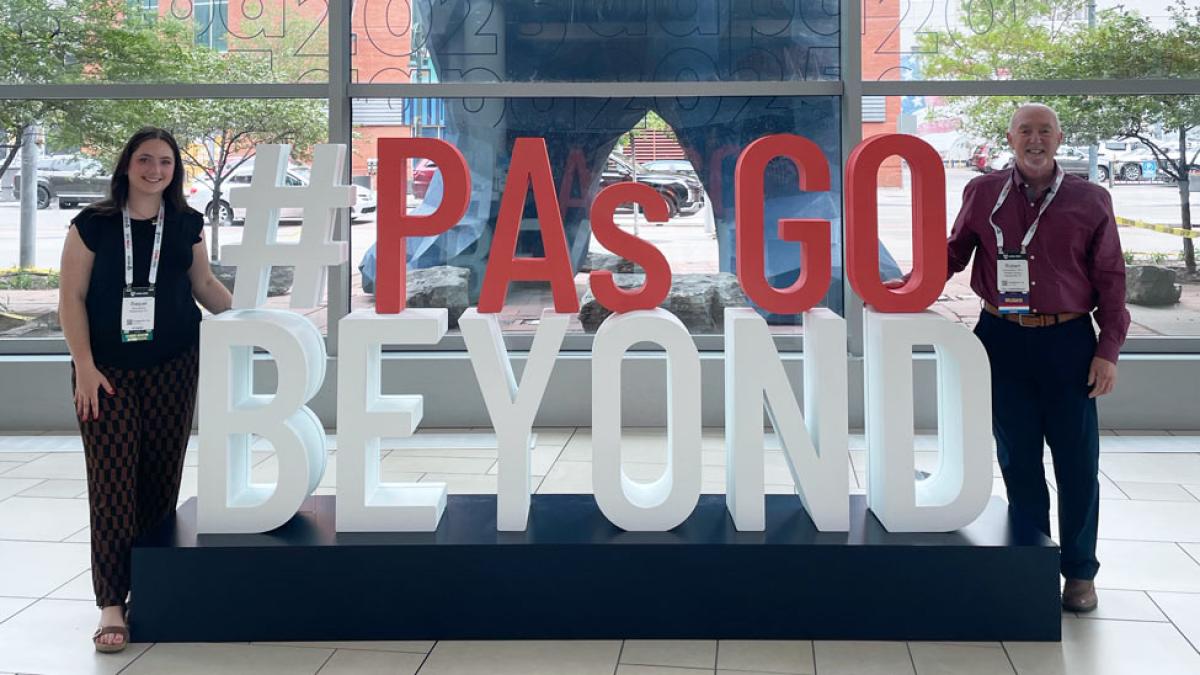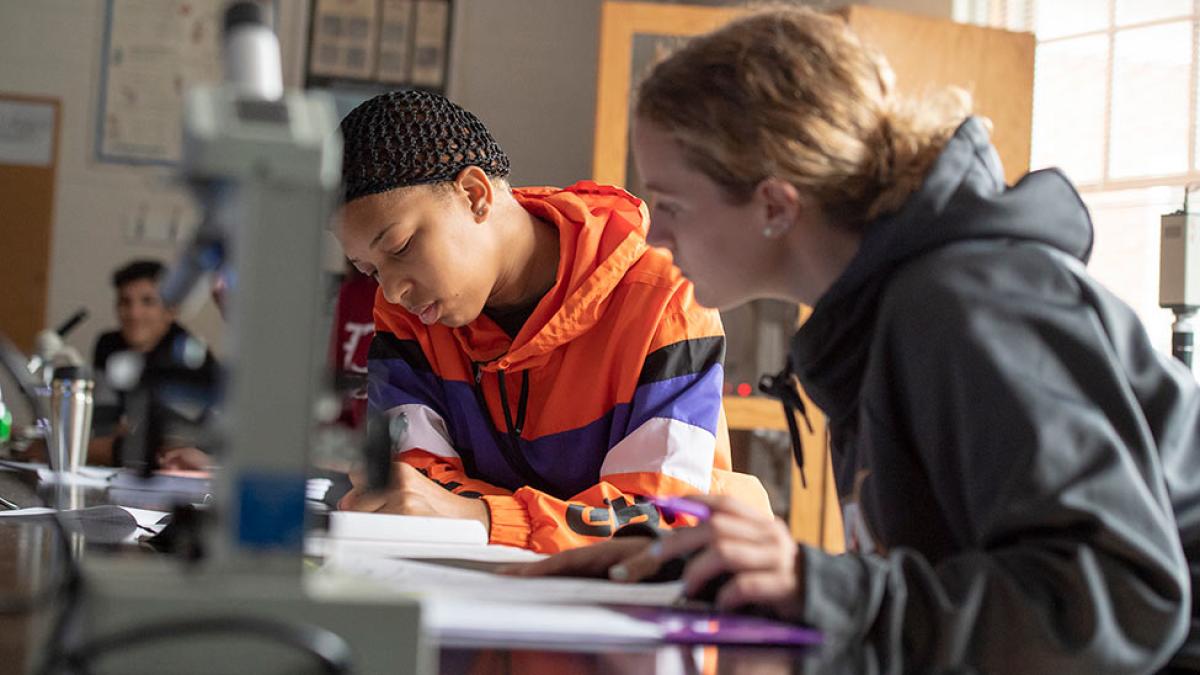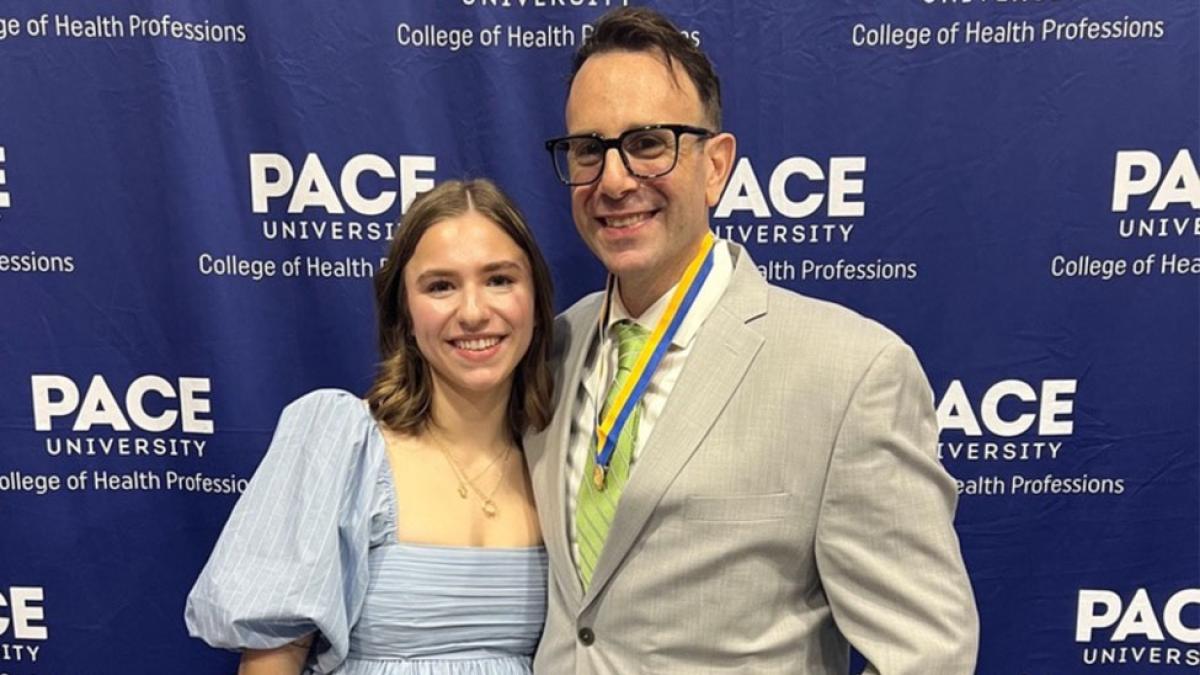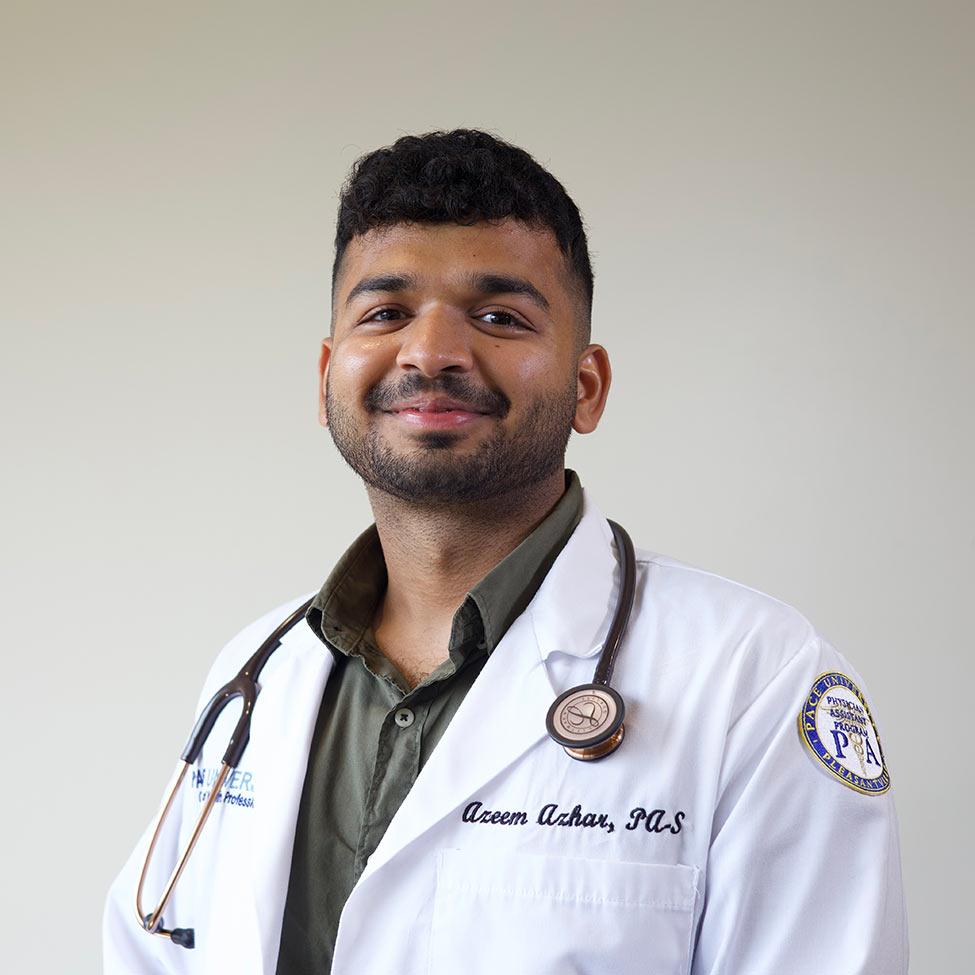
Pursuing Career Passion: Azeem Azhar, Dual Alumni of Pace University

Meet Azeem Azhar: a soon to be Pace University dual alumni. A 2021 graduate of the Bachelor of Arts in Biological Psychology, Azeem continued into the Master of Science Physician Assistant Program – Pleasantville program, which he aims to have completed in December 2025. Throughout his time in the program, Azeem makes sure to take advantage of all Pace has to offer – connecting with the expert faculty, diving into clinical rotations, and becoming a leader in the community.
What inspired you to become a physician assistant (PA)?
I was fortunate to intern at Westchester Medical Center during my senior year of high school, which gave me early exposure to the healthcare field. I shadowed various professionals, but it was the PAs who really stood out. I admired their strong patient interaction and the unique flexibility of their role—being able to switch between specialties without being confined to just one. That balance of autonomy and collaboration is what truly drew me to the PA profession.
Why did you decide to continue at Pace for your master's program? What made this program stand out to you?
As a Pace undergrad, I was already familiar with the College of Health Professions and the high standards it maintains. The small student-to-faculty ratio was a huge plus—it fosters meaningful connections with peers and professors, creating an environment where learning is personalized and supportive. Being just five minutes from home, I could stay close to family, avoid long commutes, and devote more time to my studies. What also stood out was the program’s strong clinical affiliations throughout New York and surrounding regions, which ensures exposure to a diverse patient population and learning experience.
What has your experience with the program faculty been like?
What sets this program apart is how much the faculty genuinely care about student success. They consistently provide feedback, share learning resources, and push us to refine our foundational skills—from performing physical exams to confidently presenting patients. Their focus isn’t just to get you through exams; it’s to make sure you’re walking out of this program with a strong, lasting foundation that you can build your career on. That kind of dedication makes a big difference in your learning and growth.
What benefits and opportunities have you had in the program that stand out to you?
The greatest benefit has been the access to faculty who are not only experts in their field but are also approachable and generous with their time. I’ll never forget Professor Joshua Blair's open lab sessions that helped me feel confident before starting rotations. Dr. Lisa Millman shared customized study guides and AI learning tools and took the time to show us how to use them effectively. These moments are a reminder that this program isn’t just about instruction—it’s about mentorship.
What has been your biggest challenge during your academic career and how have you overcome it?
Coming straight from undergrad, I was one of the younger students in the program. While I was ready academically, I didn’t yet have the clinical or patient interaction experience that many of my classmates had. Fortunately, the faculty were incredibly supportive—they took the time to coach me through patient scenarios and helped me build the confidence and skills I needed to communicate effectively in a clinical setting. That level of individualized support made a huge difference.
A large part of the PA program involves engaging with the community (Boy Scouts, Girl Scouts, fundraisers, etc.) — what has that experience been like?
It’s a blessing to be able to give back to the community that has supported you. One thing I appreciate about this program is how it emphasizes service—it’s not just about clinical excellence, but about staying grounded in the reason many of us chose this path: to help people. From working with youth organizations to participating in fundraisers, these experiences reconnect you with the human side of medicine and remind you why you started this journey.
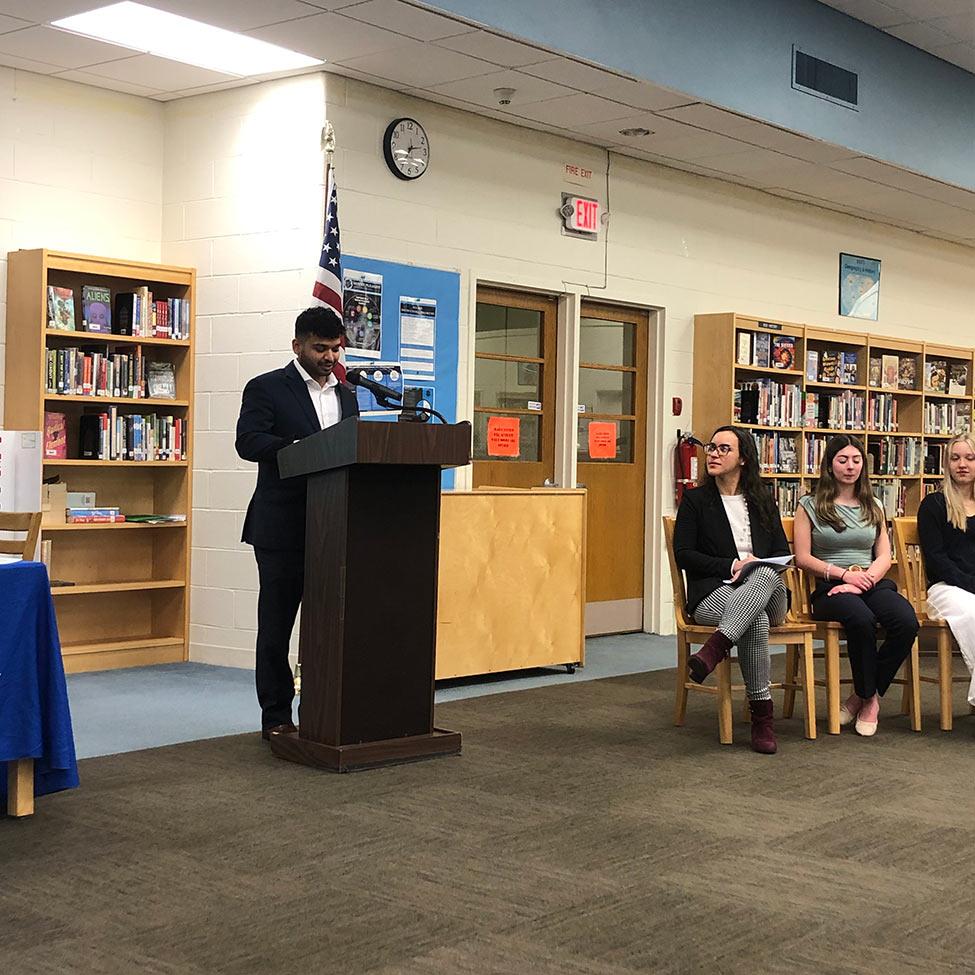
You recently gave the keynote speech at Westlake High School’s National Honor Society induction. What was that like?
It was a truly special and full-circle moment. Growing up, my family moved around quite a bit, but we eventually settled in Westchester, and I attended Westlake High School. There were six of us—my siblings and I—and over time, we became well-versed in the community. Westlake embraced us, and we really felt at home.
Even after graduating over seven years ago, when I returned to give the keynote speech, students came up to me asking, students came up to me asking about my experiences and even if I was related to people that they knew. That really stuck with me. It reminded me of how close-knit and welcoming this community is, and how meaningful those ties are.
When my former high school science teacher invited me to speak at the National Honor Society induction ceremony, I was truly honored. I wanted the students to know that I had once been in their shoes—that the person speaking to them was one of their own. With my family's long-standing connection to the school, it felt like I was speaking to extended family.
In my speech, I reflected on my own journey through clinical rotations and how, even in a hospital full of professionals with accolades and experience, the qualities that truly stand out are your curiosity, your humility, and your drive to keep growing. I reminded them:
"When you're standing in front of a patient, the accolades matter less than your desire to learn, your humility in how you treat others, and your never-ending commitment to help. If you can hold onto those values, you'll go far."
That’s the message I hoped they would carry forward—because it's what continues to guide me every day in medicine.
How has CHP prepared you for life post-graduation and what are your plans?
CHP has given me more than just clinical skills—the resources they provide have helped me grow into someone who is confident navigating real-world patient care. I’ve developed a strong medical foundation, built meaningful relationships with peers and faculty, and learned the value of collaboration. These are tools I’ll take with me long after graduation.
Right now, I’m exploring interests in both surgery and emergency medicine. I'm using rotations as an opportunity to absorb as much as possible and learn from every experience. Thankfully, the formula for growth is the same in either field: show up ready to learn, study diligently, and ask questions. If I stay consistent with that mindset, I know I’ll be successful in whichever path I choose.
Any additional details you'd like to share?
Clinical rotations have been incredible. There’s something powerful about watching the material you’ve studied come alive in a real patient encounter. It deepens your appreciation for medicine and pushes you to think more critically. Seeing how symptoms, diagnostics, and treatment plans all come together in real time is what really brings learning full circle—and it keeps the curiosity alive.
One moment that really stuck with me was during a neurosurgery case. We had the chance to speak with the neurosurgeon, and someone asked about their long hours and demanding schedule. We were all amazed and asked, “Do you ever feel exhausted?” The surgeon smiled and said, "There is no exhaustion when you truly love what you do."
That line really stayed with me. It reminded me of the kind of passion I hope to carry into my own career—that when you find fulfillment in your purpose, even the hardest days are worth it.
